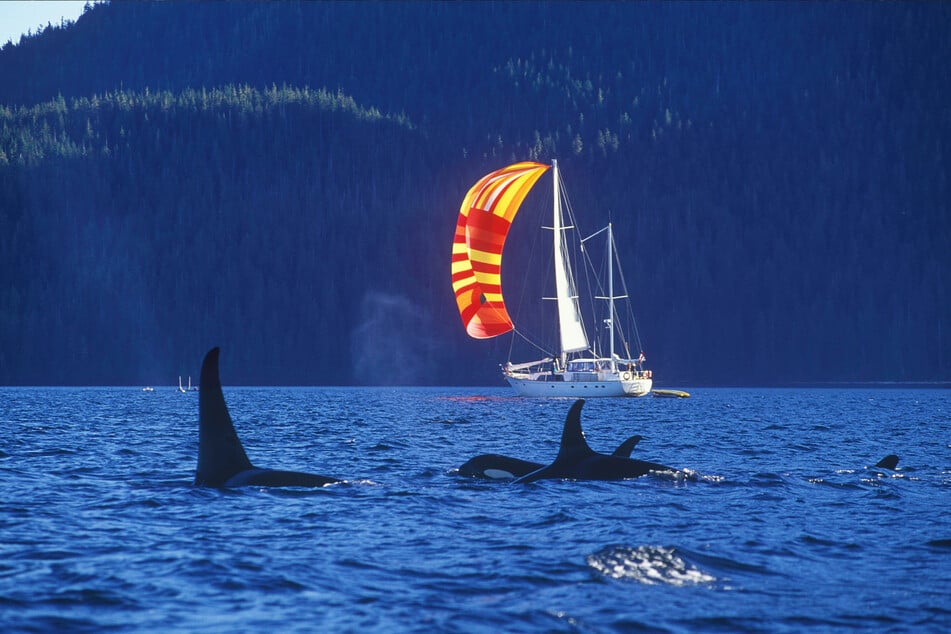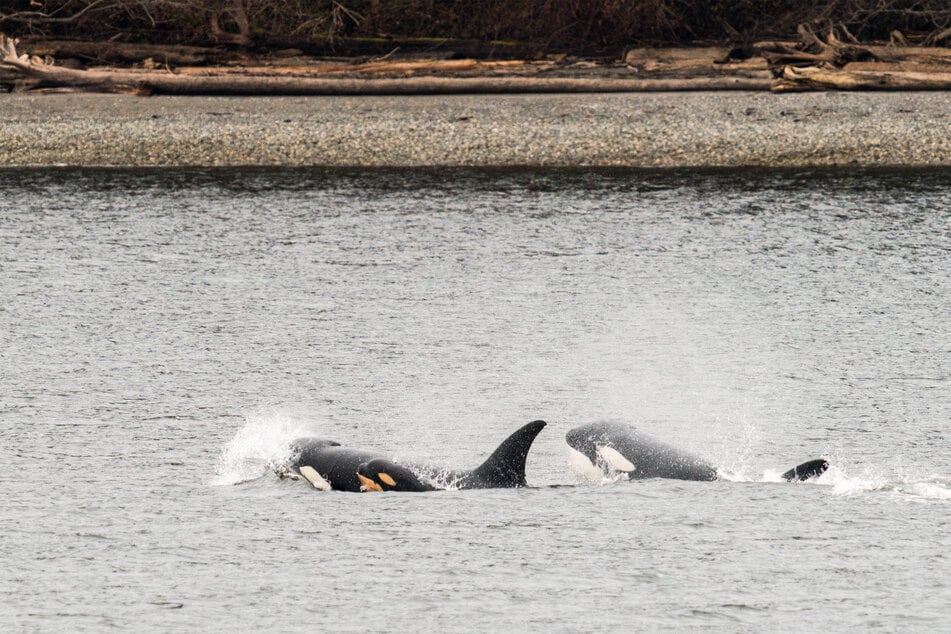Squad of orcas sinks 50-foot yacht in Strait of Gibraltar
Strait of Gibraltar - Off the coast of Morocco, in the waters of the Strait of Gibraltar, a massive fifty-foot yacht was sunk by orcas who rammed the hull and rudder of the ship.

A squad of orcas, made up of an unknown number of individuals, assaulted a ship off the coast of Morocco on Sunday, inflicting serious damage to its hull and rudder that resulted in the eventual sinking of the vessel.
The 50-foot ship, named the Alboran Cognac, was carrying two people at the time, who felt the strong and sudden blows that came before the boat started taking on water.
Luckily, the two passengers managed to contact rescue services and were picked up by a nearby oil tanker which then took them on to Gibraltar. The ship itself was left afloat when they were rescued but eventually sank.
The pod of orcas that took down the yacht on Sunday is likely to be, though not definitively, the same pod of 37 that have been attacking vessels in the strait of Gibraltar since roughly 2020.
After a vessel was repeatedly rammed off Shetland in the North Sea, the Dutch yachtsman onboard, one Dr Win Rutten, described the encounter in frightening detail.
Orca attack part of a worrying trend

"What I felt [was] most frightening was the very loud breathing of the animal," said Rutten, according to the Guardian. "Maybe he just wanted to play. Or look me in the eyes. Or to get rid of the fishing line."
The trend of orca attacks has even spawned its own hashtag – #orcauprising – with many wondering why orcas seem to be attacking humans and projecting human motivations onto the world's largest dolphins.
While many believe that the orcas are trying to attack humans, Philip Hoare (the writer of Leviathan and Albert and the Whale) said, after experiencing his own orca interaction in Sri Lanka, that he was skeptical.
"If that species wanted to do anything with us in the ocean, they could," explained Hoare. "If killer whales wanted to start attacking people, disabling small vessels is a very strange way of going about that. They could just start eating swimmers all over the place."
Instead, many believe that the orcas are simply interacting with human vessels both out of curiosity and because they may enjoy the feeling of the boats against their skin.
Whatever theories there may be, though, there is no definitive and scientifically proven reason for the steep increase in boats sunk by orcas over the last few years.
Often referred to as "killer whales," while these apex predators are some of the most effective hunters and most dangerous animals in the ocean, it is extremely rare that they attack humans. Interestingly, orca attacks against humans are far more common in captivity than they are in the wild.
Increasing orca-vessel "interactions" (a term preferred by scientists) in the Strait of Gibraltar and elsewhere, therefore, poses more of a risk that boats will be wrecked and crew drowned than a risk that people will be eaten by these magnificent creatures.
Cover photo: IMAGO/SuperStock

